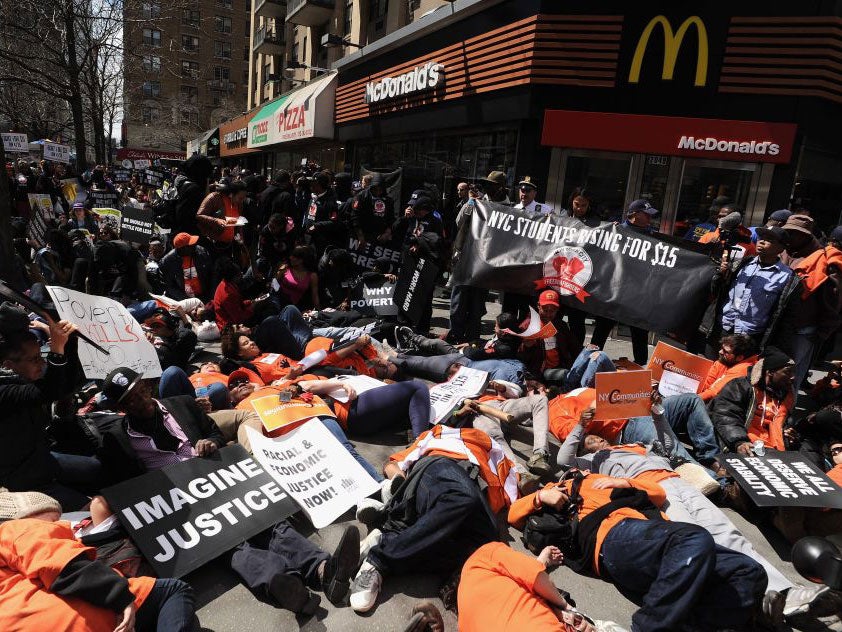McDonald's staff not lovin' it despite 80¢-an-hour rise
Competition, disgruntled workers, alarmed investors: McDonald's is facing its most serious crisis yet

Your support helps us to tell the story
From reproductive rights to climate change to Big Tech, The Independent is on the ground when the story is developing. Whether it's investigating the financials of Elon Musk's pro-Trump PAC or producing our latest documentary, 'The A Word', which shines a light on the American women fighting for reproductive rights, we know how important it is to parse out the facts from the messaging.
At such a critical moment in US history, we need reporters on the ground. Your donation allows us to keep sending journalists to speak to both sides of the story.
The Independent is trusted by Americans across the entire political spectrum. And unlike many other quality news outlets, we choose not to lock Americans out of our reporting and analysis with paywalls. We believe quality journalism should be available to everyone, paid for by those who can afford it.
Your support makes all the difference.This is supposed to be a week of celebration at McDonald’s: it is 60 years since the ubiquitous fast-food restaurant opened its first franchise in Des Plaines, Illinois.
Instead, the company is facing its most serious crisis, besieged by intense competition, concerned investors, disenchanted franchisees and disgruntled workers, thousands of whom joined a global “day of action” demanding higher wages.
The protests come even though McDonald’s newly installed chief executive, Steve Easterbrook from Watford, announced a pay rise for 90,000 of its restaurant workers at the start of this month, taking their hourly wage from $9.10 to $9.90 (£6.70).
But rather than quell revolt the pay rise seems to have fuelled one – it is a long way short of the $15 an hour many have been calling for and actually ignores the wage demands of 750,000 staff in the US. Protests and walkouts took place in more than 230 McDonald’s locations, including the US, Britain, France and New Zealand, while the hashtag #Fightfor15 trended on Twitter.
The problem is that hardly anyone who works in a McDonald’s restaurant actually works for McDonald’s. The 750,000 who will not get a pay rise work for franchisees, who own and operate their restaurants separately from the corporation.
The franchisees pay a lot of money to build and own a McDonald’s. Just getting started in the US can range in cost from just under $1m to approximately $2.3m, of which 40 per cent must not be borrowings.
However, claims that higher wages will kill franchises are increasingly falling on deaf ears as competitors such as Shake Shack and Chipotle Mexican Grill pay higher wages while growing significantly faster.
One of the key elements of the franchise industry has also been that staff hired by the franchisee do not work for the corporate franchiser. But a landmark 30 March decision by the National Labor Relations Board may change that.
It decided that McDonald’s is a “joint employer”, at least partly responsible for pay and conditions at franchisee restaurants as well as its traditional role in marketing and menu decisions. That could change the entire franchise industry.
Join our commenting forum
Join thought-provoking conversations, follow other Independent readers and see their replies
Comments